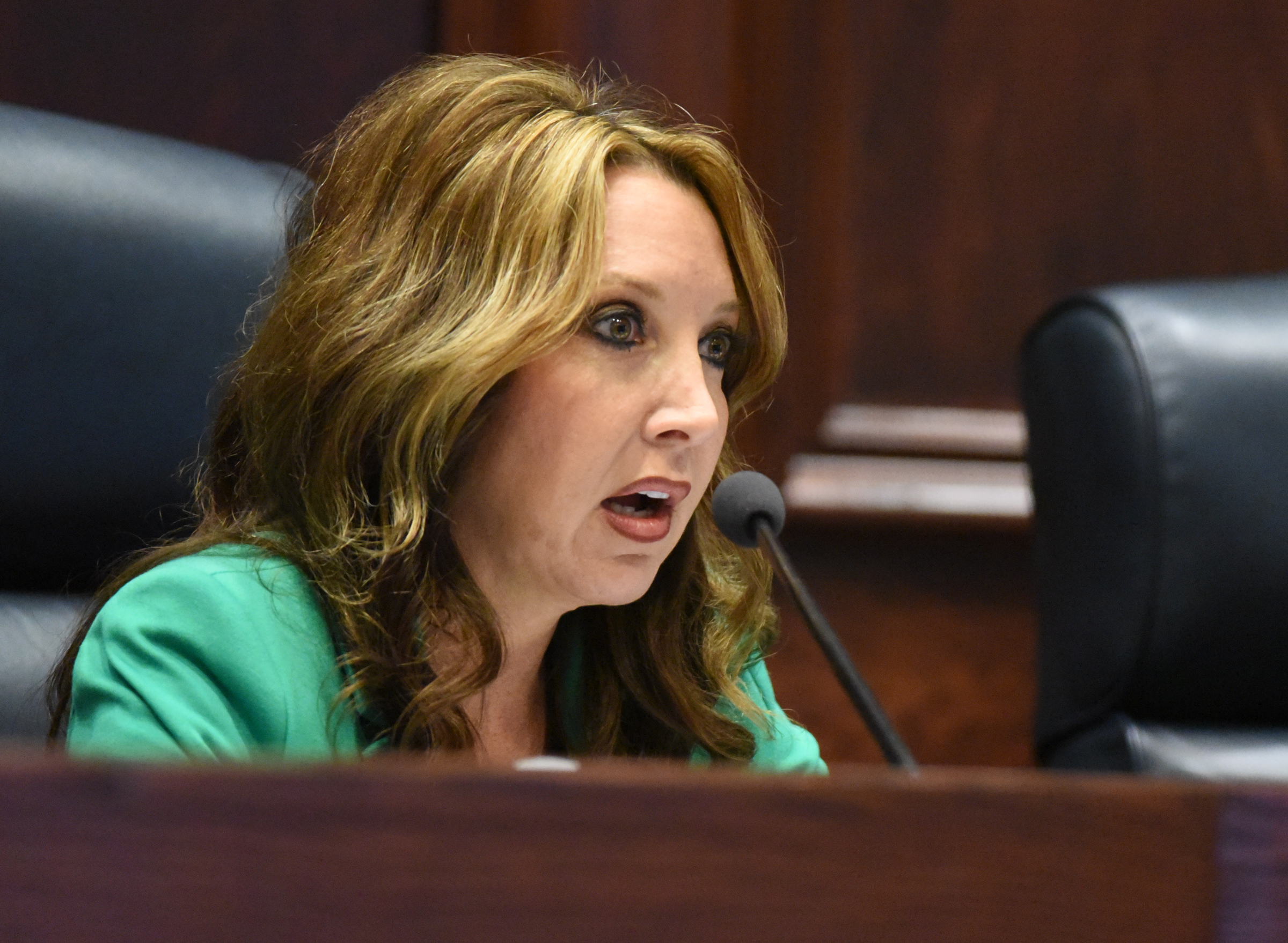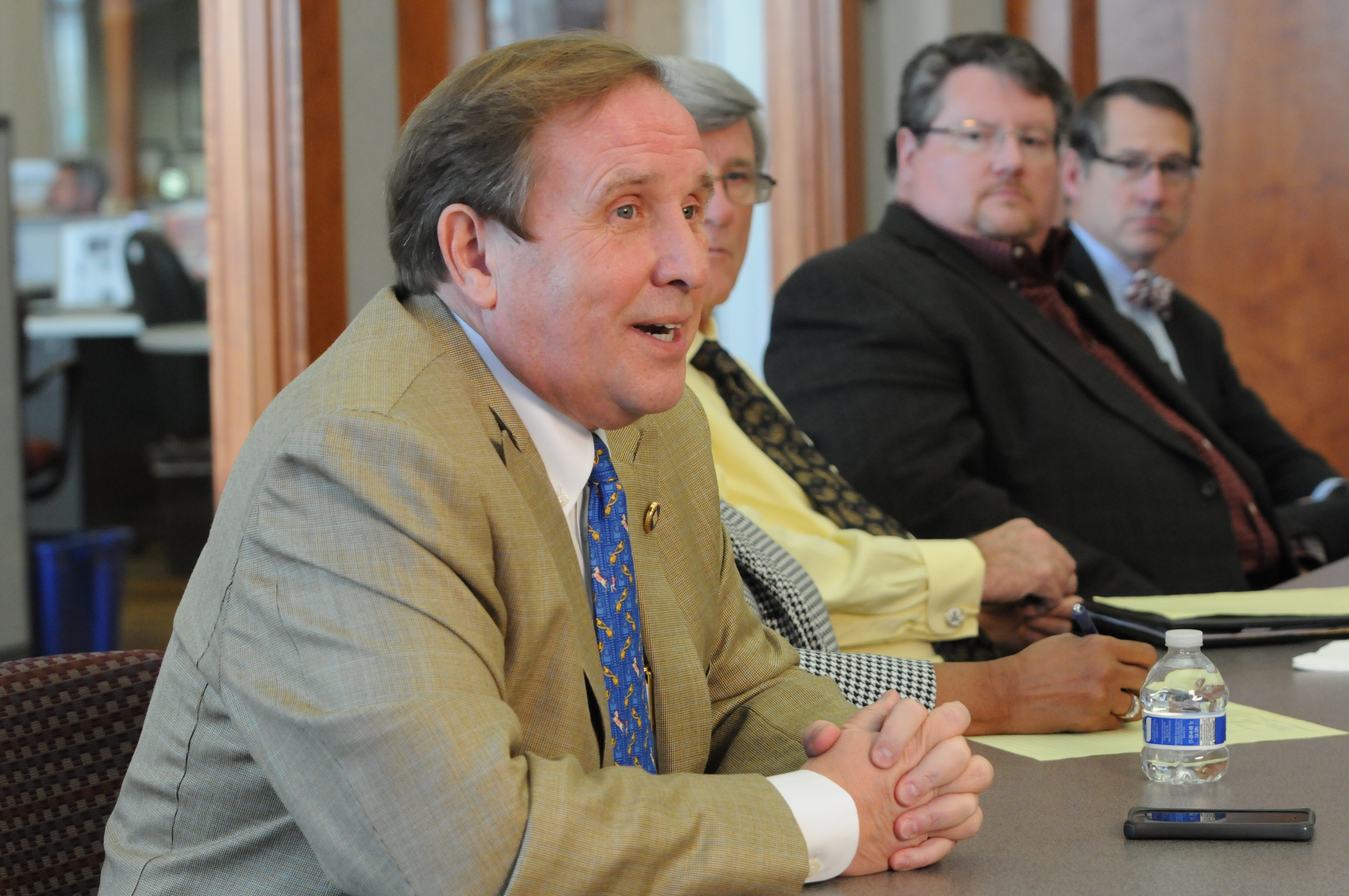NASHVILLE - A Hamilton County commissioner and two Chattanooga residents on Tuesday urged a state Senate panel to pass a controversial municipal de-annexation bill, saying the city of Chattanooga provided them virtually no new services when the city annexed them.
Commissioner Sabrena Turner-Smedley told State and Local Government Committee members, who are reconsidering the bill, that then-Chattanooga Mayor Ron Littlefield embarked on an "annexation spree" back in 2009 and 2010 to cover up city revenue shortfalls and pump up the city's population in advance of the U.S. Census.
The commissioner described how as a homeowner and Realtor she got "apprehensively involved" in 2009 and began an anti-annexation group, Hamilton County Residents Against Annexation, which raised $200,000 and "stopped this train they were driving" at that point.
But a number of the areas were annexed later.
During Tuesday's meeting, State and Local Government Committee members approved a number of amendments to the bill, sponsored by Senate Speaker Pro Tempore Bo Watson, R-Hixson, that would allow residents of areas annexed beginning in 1998 to push referendums allowing them to vote to secede from cities.
Watson called several of the amendments, passed on 7-0 votes, "hostile" to his intent.
A final committee vote was delayed until today with one bill supporter, Sen. Mark Green, R-Clarksville, absent.
The House bill, sponsored by Rep. Mike Carter, R-Ooltewah, has already passed the lower chamber. But it ran into problems in the Senate earlier this month and was driven from the chamber's floor back to committee for further consideration.
The new amendments were seen as more favorable to cities and most were vehemently opposed by Watson. For example, one raised the percentage of voters' signatures required to force a referendum vote from the 10 percent requirement in the House bill to 20 percent.
The amendment was offered by Chairman Ken Yager, R-Kingston, who earlier saw his efforts to strike a compromise at 12 percent fizzle.
Watson opposed boosting the 10 percent threshold, telling colleagues, "I don't think we'll see this rash of de-annexations" because most cities "did things right I think we already have a high bar. Why would we set the bar higher for those citizens who want to exercise their constitutional right, in my view?"
But Sen. Jack Johnson, R-Franklin, said he believes there will be a "rash of referendums." He said most of the annexations in his county involved developers seeking to build homes on farm land.
"The only residents were cows prior to the annexation," Johnson said, voicing concerns a small group could push a referendum and "lead to a lot of heartache for families" who now live there.
Watson said the bill provides that there would only be one referendum vote. And he noted another bill provision would allow residents who opposed leaving a city in a successful de-annexation vote to petition cities to have their homes taken back in. Cities could accept or refuse.
The 20 percent requirement would create an "illusion" for the public by "setting the standard so high no one can meet it," Watson argued.
Another change opposed by Watson would allow cities to continue taxing de-annexed property owners for a proportional share for costs of public employee retirement obligations incurred while residents were in a city.
The bill already required would-be departing residents to continue paying property taxes for general obligation bonds issued by cities during their time there. But the provision goes further.
On the issue of their having to continue to pay for worker pension and other retirement benefits paid for out of regular spending, Watson said it was unfair and said it amounts to their paying taxes twice.
"I can see how somebody may characterize it that way," said Jason Mumpower, the state's deputy comptroller, whose office was asked by Yager to write the amendment but took no position on it. " But it is probably different among municipalities."
The city of Memphis was slammed several years ago with the need to boost city pensions and other retirement benefits by millions of dollars because it had not kept up with funding, diverting it elsewhere.
Chattanooga was impacted far less because it had largely kept up funding.
While not a member of the committee, Sen. Todd Gardenhire, R-Chattanooga, was asked by Watson to testify because he was once chairman of the federal Pension Benefit Guaranty Corp. that deals with private pensions that are in trouble.
Gardenhire said cities should have been keeping abreast of their obligations. He took a jab at Chattanooga Mayor Andy Berke, who last week called the bill a "little bit of a pig in a poke" because it is "really not good for citizens and certainly isn't good for cities and the people who live around them."
The senator said, "I contend to you that some of these [cities] were pigs at the trough."
Watson's bill now includes all cities. In an effort to get his version passed, Carter limited the House bill's impact to just five cities the bill charged had engaged in "egregious" behavior. The word "egregious" is an attempt to provide legal justification for not including some 350 other Tennessee towns and cities.
Cities cited in the bill were Chattanooga, Memphis, Knoxville, Kingsport and tiny Cornersville in Middle Tennessee.
Last week, opponents of the bill, including Berke, testified against the bill. On Tuesday, anti-annexation supporters testified.
Bill Reesor, who lives in the Ramsgate development in Hixson, told lawmakers, "I can tell you of people who've lost their home after their taxes doubled."
Also testifying on behalf of Watson's bill was Jim Chastain, a resident of North Hixson and, like Reesor and Turner-Smedley, is a member of Hamilton County Residents Against Annexation.
After the hearing, Reesor charged senators were "attempting to cover themselves" and substituted the 20 percent threshold on voter signatures to force a referendum as "an attempt to thwart the will of the people."
Contact Andy Sher at asher@timesfreepress.com, 615-255-0550 or follow via twitter at AndySher1.


